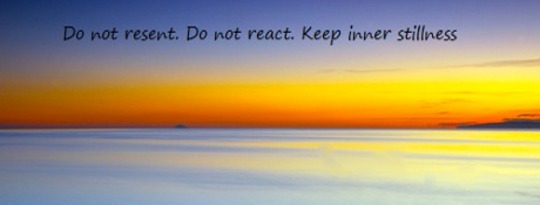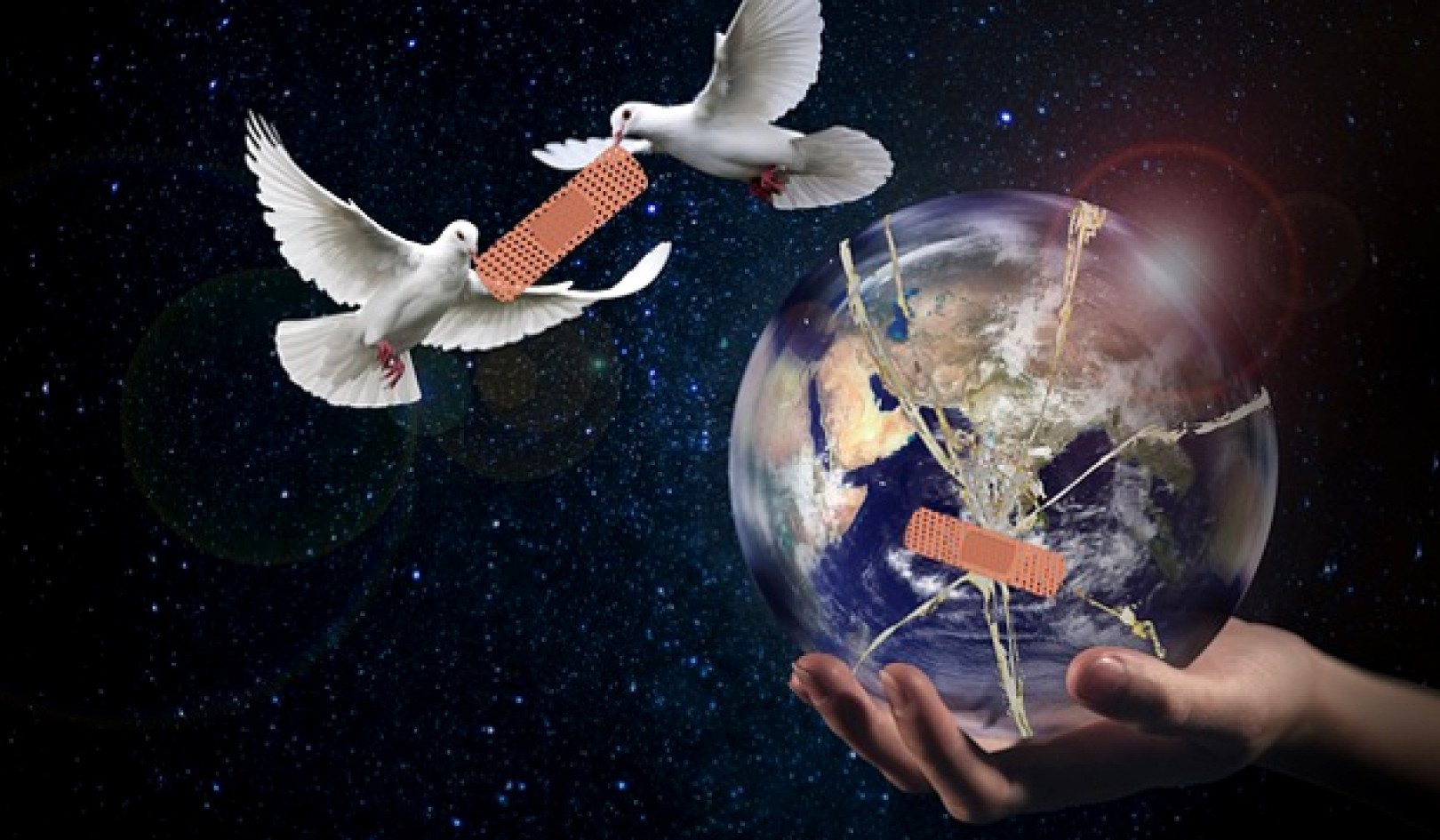
Most spiritual people are looking for something, and most of the time we believe that what we are looking for is outside of ourselves. But ultimately what we are seeking is this unborn, already self-enlightened, unbounded Buddha mind, and it is already present within each of us.
There is only one mind, but there are two states of mind, the conditioned mind and the unconditioned mind. We live in our conditioned mind most of the time. We need to get from there to the realm of our unconditioned mind. That’s what meditation practice is all about.
The word for “conditioned mind” in the Tibetan language has the connotation that the conditioned mind is something temporary. It is something that is ready to be dissolved or wiped away, just like the dust on the mirror. The conditions obscuring our mind are not permanent.
Experiencing a Sense of Dissatisfaction?
If we honestly look inside, we may see how much we live in conditioned mind, which is run by thoughts, ideas, and perceptions. Isn’t it true that we are constantly experiencing a sense of basic dissatisfaction? It is the very basis of human suffering, which is grounded in ignorance, yet it is almost the normal state of our consciousness.
Most of the time whatever we are experiencing is merely a mental habit. Fear is a mental habit, so is hatred, and so is this ongoing sense of dissatisfaction. We are dissatisfied with the way we look, with what we have, dissatisfied with others, and so forth.
Dissatisfaction can pretty much dominate every level of our consciousness. Sometimes wanting to be enlightened, wanting to become holier can be a form of dissatisfaction. It is a spiritual dissatisfaction. This kind of wanting is very different from the spiritual aspiration that is taught as a doorway to enlightenment in many spiritual traditions, because the latter doesn’t want anything. It’s the total willingness to let go of everything.
Letting Go Is Hard To Do?
Usually letting go is a very hard thing for human beings to do. This may have to do with our deep fear that if we just let go of everything, we will lose control over our life. To the ego, it looks like taking our hands off of the steering wheel while the car is moving. It can be more chilling than exciting.
When we allow ourselves to fall into the heart, letting go happens on its own. So there is no longer “I” who is trying hard to either hold on or let go.
Enlightenment is possible because it is already in each of us; it is the natural state of our mind. If enlightenment were not the natural state of our mind, then enlightenment would be a result, the fruition of a long and arduous process. But it is not a spiritual trophy that we can attain by being smart or by working hard. It is not an award or a reward. It is already the intrinsic state of our mind right now , as it is.
It doesn’t really matter whether we take another eon or another ten years or another moment. All that matters is that in the end we arrive at this very last point, which is to fully and completely see our true nature. The point is not to conceptualize or intellectualize this, but to experience this beautiful reality.
Liberation: Dancing on the Stage of Our Consciousness
 Liberation is already dancing on the stage, or the platform, of our consciousness. How can we experience that right now? Is there a method? Actually there are many methods. One method is expressed in this very old saying: “Rest in the natural state of mind.” This method is powerful, dynamic, and transformative.
Liberation is already dancing on the stage, or the platform, of our consciousness. How can we experience that right now? Is there a method? Actually there are many methods. One method is expressed in this very old saying: “Rest in the natural state of mind.” This method is powerful, dynamic, and transformative.
“ Rest,” of course, has many meanings, but here “rest” does not mean simply ordinary rest. It means stopping all of mind’s effort, including the effort of seeking, meditating, analyzing, and trying to hold on to something. It isn’t trying to get rid of or achieve something.
We just let go of all of mind’s effort and be in the natural state of mind and we don’t have to figure out what that is. That’s the good news. We are no longer the responsible agent who is going to make sure that enlightenment is going to arise on time. That’s a big relief, isn’t it?
We Are Not Responsible for the Sun Rising on Time
In the morning we see that the sun is shining. Are we the agent responsible for making sure that the sun rises on time? No. In the same way , we don’t have to take care of this enlightenment business any more. In that place of no more searching, we are totally resting without even the slightest sense of exertion. Then, believe it or not, enlightenment shines. Conditioned mind drops away without really making a big fuss once we know how to let liberation come to us by simply resting, deeply resting.
Deeply resting is the point where we are no longer looking for anything else. As long as there is an act of searching for God or truth or eternal self, we are actually moving away from it with great speed. In that deep resting a beautiful stillness arises, which is the vantage point from which we can have a glimpse of the luminous mind and finally merge with it.
W e don’t have to become renunciants and live far from worldly distractions to deepen our relationship with that stillness. As our love for this stillness keeps growing, we find many moments every day to dive into it. Soon nothing from the outside has the power to distract us from it. As a matter of fact, everything serves as a gate to enter into it.
There is no certainty that we will be here tomorrow. What is the point of prolonging our suffering? Can we live with more love and joy? The answer does not lie in having the best technique or the most knowledge, but in our inborn ability to awaken to our true nature, the luminous mind within.
*subtitles by InnerSelf
©2012 Anam Thubten.
Reprinted with permission of the publisher,
Snow Lion Publications. www.snowlionpub.com
Article Source
 The Magic of Awareness
The Magic of Awareness
by Anam Thubten.
Info/Order this book on Amazon.
About The Author
 Anam Thubten grew up in Tibet and at an early age began to practice in the Nyingma tradition of Tibetan Buddhism. Among his many teachers, his most formative guides were Lama Tsurlo, Khenpo Chopel, and Lama Garwang. He is the founder and spiritual advisor of Dharmata Foundation, teaching widely in the U.S. and occasionally abroad.
Anam Thubten grew up in Tibet and at an early age began to practice in the Nyingma tradition of Tibetan Buddhism. Among his many teachers, his most formative guides were Lama Tsurlo, Khenpo Chopel, and Lama Garwang. He is the founder and spiritual advisor of Dharmata Foundation, teaching widely in the U.S. and occasionally abroad.
























